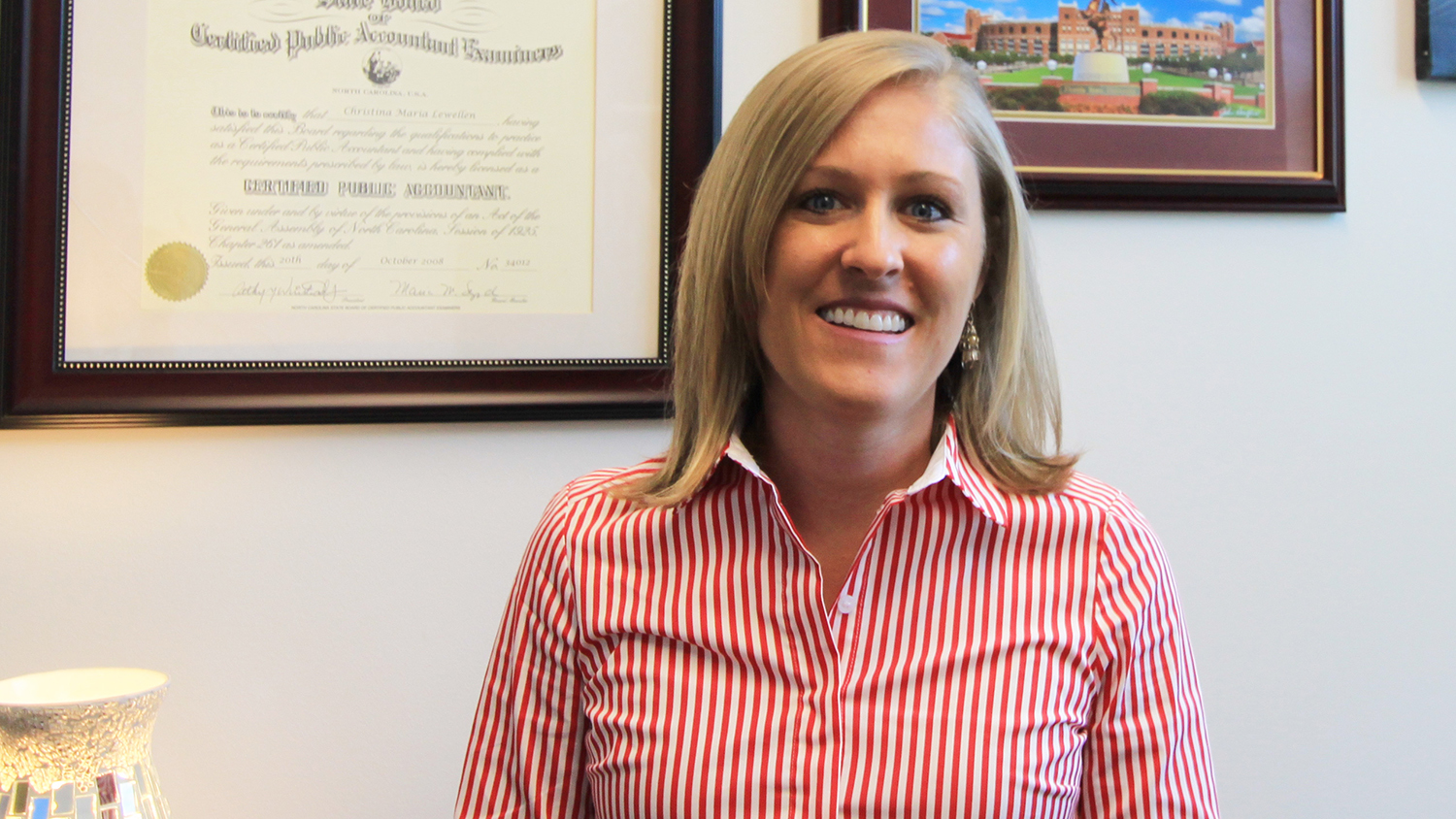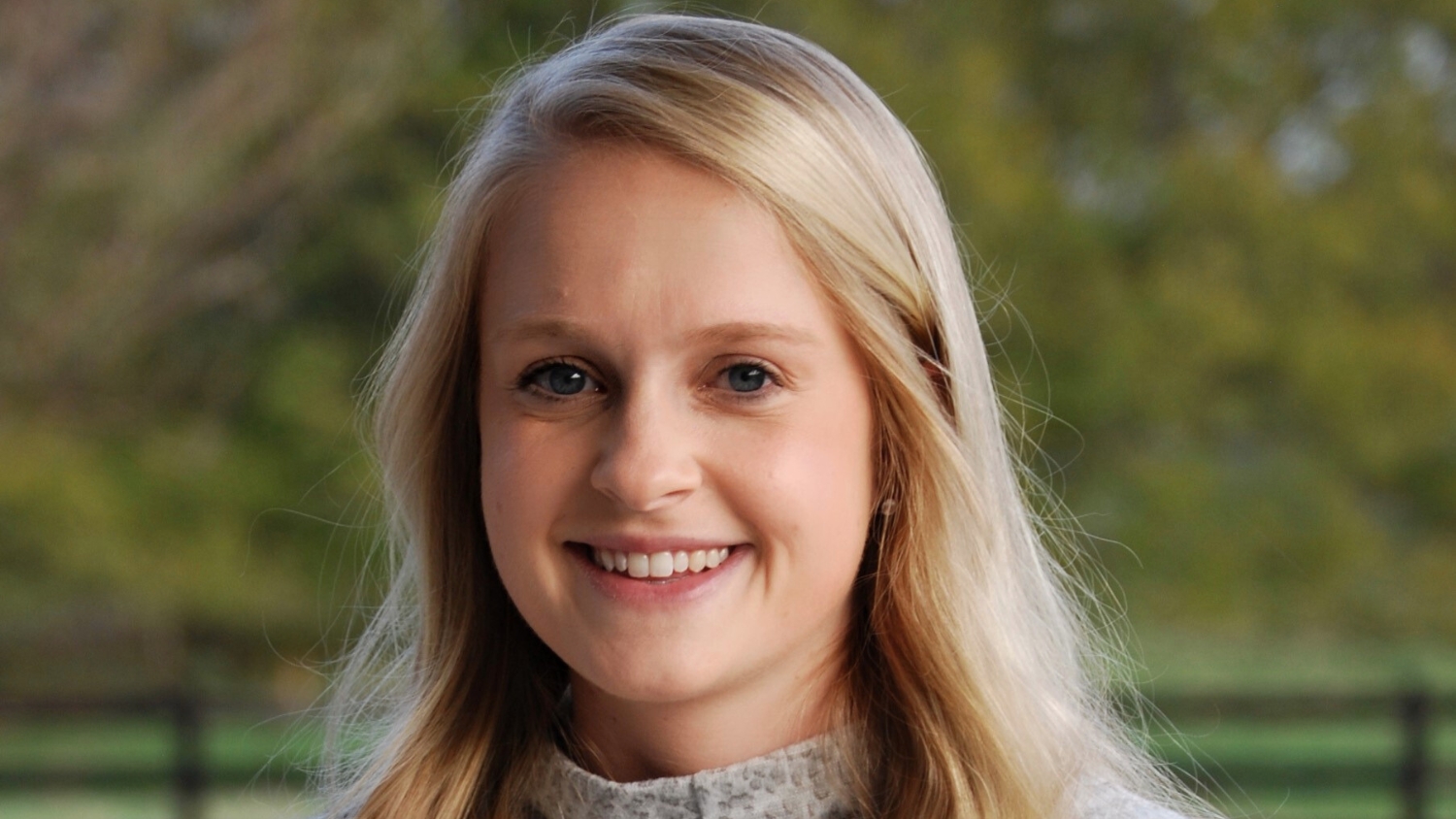Christina Lewellen Receives Two Dissertation Awards

Christina Lewellen, assistant professor of accounting at the NC State Poole College of Management, received two awards at the American Accounting Association’s annual meeting held August 6-9 in San Diego, Calif.: the 2017 American Taxation Association/PricewaterhouseCoopers (ATA/PwC) Outstanding Dissertation Award and the 2017 Outstanding International Accounting Dissertation Award.
Lewellen completed the dissertation as part of her doctoral degree in the accounting program at Florida State University. She received her doctoral degree in 2016 and joined the Poole College Department of Accounting as assistant professor in August 2016. Lewellen previously practiced as a certified public accountant, working on both audit and tax engagements, with firms in North Carolina.
About her dissertation
Her dissertation titled “Tax Haven Incorporation and Financial Reporting Transparency” received very strong support from the ATA committee charged with choosing the award recipient, noting that it addresses an interesting and important question in a novel way, according to Stephanie Sikes, assistant professor of accounting at The Wharton School of Business, who informed Poole College of the award.
“Christina’s paper extends the tax shelter literature, which often focuses on firms with subsidiaries in tax haven countries,” Sikes wrote.
Using a unique international data set, Lewellen investigated the financial reporting transparency among firms with different parent entities incorporated in tax haven countries, examining whether these tax haven-incorporated firms differ from other multinational firms in terms of their financial reporting transparency. She found that the information environment in the firm’s base country (where the firm’s management or primary operations are located) impacts financial transparency. Specifically, she documented that tax haven-incorporated firms based in countries with weak information environments have lower financial reporting transparency compared with other multinational firms based in those countries. However, tax haven-incorporated firms based in countries with stronger information environments actually have higher financial reporting transparency compared with other multinational firms based in those countries.
The central findings are at odds with a common perception by many commentators that financial reporting transparency is low in tax haven countries without exception. The results offer evidence of how tax havens might actually be beneficial to financial statement users in some settings.
Lewellen also responded to a few Poole College communications questions about her research and its role in her teaching.
Q: What led you to this line of research?
My major professor at Florida State, T.J. Atwood, had a strong interest in international accounting and tax research and she sparked my interest in this area. We worked together on a project for my second-year paper that required reading financial statements and proxy statements of companies that had incorporated in tax havens. In the process of reading the firms’ disclosures, it seemed to me that these tax haven-incorporated firms appeared to provide quite a bit of information about why they incorporated in the tax haven and other relevant information about incorporating offshore. This was in contrast to the predominant perception in the public and the literature that tax havens often leads to opacity and manager misbehavior. That’s what led me to this question to investigate for my dissertation of whether tax haven-incorporated corporations differ from other corporations in the transparency of their financial information.
Q: How does this research inform/impact your teaching?
My research informs my teaching a great deal. It gives me real world empirical evidence to help explain to students how tax actually impacts companies and other stakeholders. A great deal of my research is about the determinants and effects of tax avoidance strategies undertaken by corporations. The media often portrays tax avoidance as a bad thing. Consequently, many students have the perception that tax avoidance is illegal, unpatriotic, and is harmful on average, especially when companies incorporate offshore. My dissertation is just one example where I can demonstrate empirical evidence to students of tax avoidance not necessarily being a bad thing. I can show them evidence that companies that incorporate offshore in tax havens sometimes provide better information to their investors.
Q: Reflect on your first year transitioning to teaching, ongoing research, the environment here at Poole to enable you to continue building your research agenda, areas of teaching
The environment here at the Poole College has helped me in many ways from both a teaching and research standpoint. We have many great researchers in the accounting department here, some of whom I have collaborated with on research projects, and many others who have also been great mentors for navigating the publication process. We also have very good resources as far as data and travel. The travel resources have enabled me to attend conferences and network with professors at other universities and broaden the exposure of my research and the College. The data resources have enabled me to begin new projects that I otherwise would not have been able to pursue. As far as teaching, the atmosphere in the accounting department is very team-oriented, which has given me the opportunity to collaborate with other faculty on teaching ideas and resources.


